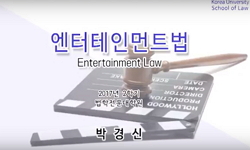정보통신기술(ICT)과 인공지능(AI) 기술이 발달되고 융합되면서 4차 산업 혁명을 탄생시켰고, 이러한 지능정보화 시대에서 개인정보보호문제는 현대 사회의 새로운 패러다임을 불러올 것으로...
http://chineseinput.net/에서 pinyin(병음)방식으로 중국어를 변환할 수 있습니다.
변환된 중국어를 복사하여 사용하시면 됩니다.
- 中文 을 입력하시려면 zhongwen을 입력하시고 space를누르시면됩니다.
- 北京 을 입력하시려면 beijing을 입력하시고 space를 누르시면 됩니다.

잊힐 권리의 민사법적 쟁점과 입법론적 연구 = A Study of Legislation and the Issues of Private Law of the Right to Be Forgotten
한글로보기https://www.riss.kr/link?id=A105338596
- 저자
- 발행기관
- 학술지명
- 권호사항
-
발행연도
2018
-
작성언어
-
- 주제어
-
KDC
360
-
등재정보
KCI등재
-
자료형태
학술저널
-
수록면
111-164(54쪽)
-
KCI 피인용횟수
0
- DOI식별코드
- 제공처
- 소장기관
-
0
상세조회 -
0
다운로드
부가정보
국문 초록 (Abstract)
정보통신기술(ICT)과 인공지능(AI) 기술이 발달되고 융합되면서 4차 산업 혁명을 탄생시켰고, 이러한 지능정보화 시대에서 개인정보보호문제는 현대 사회의 새로운 패러다임을 불러올 것으로 예상된다. 지능정보사회에서는 개인정보
의 이용이 비약적으로 증대됨에 따라 그 침해의 위험성이 그 어느 때보다도 높아지게 될 것이기 때문이다.
즉, 인터넷 환경이 참여와 공유를 기반으로 하는 Web 2.0시대로 변화하면서 SNS를 통하여 자신에 관한 많은 정보를 인터넷상에 스스로 노출시켰고, 진화된 검색엔진들로 인하여 추적 및 프로파일링(profiling)되면서 개인의 프라이버시
침해, 나아가 취업이나 가정생활에도 영향을 미치게 된 것이다.
이와 같은 문제의 심각성을 깨닫고 정보주체가 온라인상 자신과 관련된 정보에 대한 삭제 및 확산 방지를 요구할 수 있는 권리의 필요성이 사회적으로 논의되기 시작하였으며, 이러한 논의는 유럽연합에서 ‘잊힐 권리(Right to be forgotten)’라는 명칭으로 법제화 하려는 움직임을 통해 전 세계적으로 가속화되고 있다.
우리나라에서도 잊힐 권리에 관하여 다루고 있지만, 공법적인 연구에 집중되어 있어, 본고에서는 상대적으로 연구가 미흡한 민사법적 측면의 검토를 하였다. 현재 잊힐 권리의 개념이 명확하게 정립되지 않은 시점에서 그 청구대상을 ①정보주체의 동의하에 인터넷서비스제공자가 수집한 개인신상정보, ②정보주체가 게시한 정보, ③제3자에 의해 게시된 정보주체의 정보로 나누어 민법상 금지청구권의 적용가능성을 고찰하였다.
하지만 잊힐 권리가 민법상 금지청구권의 해석을 통해 실현이 가능하더라도, 잊힐 권리는 청구대상이 개인에 관한 정보이고 정보통신망에서 발생하는 권리침해이며 청구의 상대방으로 인터넷서비스제공자도 포함하고 있다. 그리고 그
판단은 법원이 해야 하므로 정보가 삭제되기까지 절차가 복잡하고 상당한 시간이 소요된다. 따라서 법적 명확성 확보와 법률의 체계를 고려해볼 때 본고에서 살펴본 내용을 바탕으로 개인정보보호법제에 명시하는 것이 정보주체가 잊힐
권리를 실현하는 데 있어 효과적인 방안이라 할 것이다.
잊힐 권리의 법제도를 마련하고자 하는 이 시점에서 공·사법의 법률문제가 함께 검토되어야 한다. 이에 따라 본 연구가 잊힐 권리가 합리적이고 균형 있는방안으로 정립되어 법제화를 추진하는 데 참고자료가 될 수 있기를 기대해본다.
다국어 초록 (Multilingual Abstract)
In the contemporary society, any information can be saved as the digital, furthermore it is possible to copy and to spread out with no elimination of the information, and it can be remained in somewhere on the Internet eternally. This phenomenon has ...
In the contemporary society, any information can be saved as the digital, furthermore it is possible to copy and to spread out with no elimination of the information, and it can be remained in somewhere on the Internet eternally. This
phenomenon has caused unexpected disadvantage by not only the information which a user has created on the Internet in the past but also spreading out the information which is related with a certain event on the Internet without the user’s intention after a long time. In other words, it has a high possibility to be abused as ‘Identity
Disclosure’ or ‘Witch-hunt’ by profiling private information which is remained on the Internet through search-engines, because the information is hard to be deleted on the characteristic of the Internet if it is exposed to the public.
Thus, it has come up for the necessary of the right to be forgotten which people can ask the prevention of diffusion and elimination of the information about themselves on the Internet, and it is accelerated through UN tried to enact it under the name of ‘the right to be forgotten’ in January 2012.
Korea Communications Commission try to prepare the guideline to guarantee the autonomy of private data of the user at least in the scope which is needed for accepting the right to be forgotten in Korea. After they operate the guideline and examine the effectiveness of it, they plan to enact the right to be forgotten by reforming the Information Network Law in the National Assembly.
The academic circles deal with the right to be forgotten, but it focuses on the legal procedures. Thus this research paper will investigate the aspect of civil law which is insufficient for the study relatively. Now, the definition of the right to be forgotten is still unclear, thus this research paper concerns the target of anspruch of the right to be forgotten as three parts. The first is the private data which the Internet service provider collects under the permission from the subject of that information. The second is the information which the subject of that information posts. The third is the information about the subject by the third person. This research paper investigates the private legal realization plans by the three targets of ansprunch of the right to be forgotten. The information which Internet service provider collects
under the permission of the subject of the information can be realized the right to be forgotten base on the general data protection regulation because it is legally private data as the closed information. The information which the subject of information posts by themselves should be recognized in accordance with the policy statement
based on the autonomy of private data of the subject as the part of the policy which is the contract of Internet service provide. Also, the information which the third person posts can be deleted partially through the elimination of works which comes from the copyright law as the method of realization of the right to be forgotten, and it can be claimed the elimination of the information based on the Information Network Law if Privacy Invasion is recognized. Furthermore, it is necessary to apply to civil legal injunctive relief to relax the application condition and standard when
it concerns the characteristic of Internet, because the concept of personal right and the degree of invasion can be flexible by depending on the period even if the personal invasion is not existed now.
Even if, however, the right to be forgotten can be realized through the construction of civil legal injunctive relief, the target of anspruch of the right to be forgotten is the private information and violation of personal right which is occurred in the information network including Internet service provider. Because the court should make a decision, it should have a complicated process and take a long time until the information would be deleted. Thus, specifying in the Information Network Law based on th
목차 (Table of Contents)
- Ⅰ. 서론
- Ⅱ. 잊힐 권리에 대한 논의 동향
- Ⅲ. 잊힐 권리의 개념과 범위
- Ⅳ. 민사법적 이론에 따른 잊힐 권리의 실현방안
- 1. 동의하에 수집된 정보주체의 개인신상정보
- Ⅰ. 서론
- Ⅱ. 잊힐 권리에 대한 논의 동향
- Ⅲ. 잊힐 권리의 개념과 범위
- Ⅳ. 민사법적 이론에 따른 잊힐 권리의 실현방안
- 1. 동의하에 수집된 정보주체의 개인신상정보
- 2. 정보주체가 자발적으로 게시한 정보
- 3. 제3자에 의해 게시된 정보주체의 정보
- Ⅴ. 입법론적 제언
- Ⅵ. 결론
참고문헌 (Reference)
1 유충호, "잊힐 권리의 실현방안에 관한 연구 : 사법상의 금지청구권을 중심으로" 중앙대학교 대학원 2015
2 최경진, "잊혀질 권리-개인정보 관점에서" 한국정보법학회 16 (16): 97-120, 2012
3 이봉림, "잊혀질 권리에 대한 민사법적 구제 및 대안 연구" 법학연구소 18 (18): 61-87, 2017
4 박준석, "인터넷서비스제공자의 책임" 박영사 2006
5 권영준, "인터넷상 표현의 자유와 명예의 보호" 한국법학원 (91) : 5-25, 2006
6 강홍렬, "인터넷 접속서비스 제공계약 및 이용약관에 관한 사법적 검토" 정보통신정책연구원 2004
7 구재군, "인터넷 이용자의 개인정보 자기결정권" 한국정보화진흥원 10 (10): 138-155, 2003
8 노기호, "언론의 인격권침해에 대한 금지청구권" 한양법학회 6 : 1995
9 유충호, "새로운 인격권으로서 잊힐 권리의 보장에 관한 고찰" 법학연구소 15 (15): 29-56, 2014
10 류시조, "사이버인격권에 관한 소고" 부산외국어대학교 19 (19): 1999
1 유충호, "잊힐 권리의 실현방안에 관한 연구 : 사법상의 금지청구권을 중심으로" 중앙대학교 대학원 2015
2 최경진, "잊혀질 권리-개인정보 관점에서" 한국정보법학회 16 (16): 97-120, 2012
3 이봉림, "잊혀질 권리에 대한 민사법적 구제 및 대안 연구" 법학연구소 18 (18): 61-87, 2017
4 박준석, "인터넷서비스제공자의 책임" 박영사 2006
5 권영준, "인터넷상 표현의 자유와 명예의 보호" 한국법학원 (91) : 5-25, 2006
6 강홍렬, "인터넷 접속서비스 제공계약 및 이용약관에 관한 사법적 검토" 정보통신정책연구원 2004
7 구재군, "인터넷 이용자의 개인정보 자기결정권" 한국정보화진흥원 10 (10): 138-155, 2003
8 노기호, "언론의 인격권침해에 대한 금지청구권" 한양법학회 6 : 1995
9 유충호, "새로운 인격권으로서 잊힐 권리의 보장에 관한 고찰" 법학연구소 15 (15): 29-56, 2014
10 류시조, "사이버인격권에 관한 소고" 부산외국어대학교 19 (19): 1999
11 김상중, "불법행위의 사전적 구제수단으로서 금지청구권의 소고 - 대법원 2010.8.25.자 2008마1541 결정에 관한 평석 -" 한국비교사법학회 17 (17): 141-172, 2010
12 위계찬, "불법행위의 금지청구권" 비교법학연구소 33 : 247-280, 2011
13 김교창, "보통거래약관의 연구" 서울통합변호사회 1983
14 윤주희, "디지털유품의 상속성에 관한 민사법적 고찰" 법학연구소 14 (14): 183-228, 2011
15 김차동, "금지청구권의 요건사실에 관한 법경제학적 검토" 한국법경제학회 7 (7): 81-106, 2010
16 배대헌, "거래대상으로서 디지털 정보의 ‘물건’개념 확대에 관한 검토" 한국상사판례연구회 14 : 2003
17 임건면, "개인정보침해에 대한 민사법적 대응" 한국비교사법학회 8 (8): 2001
18 정상조, "개인정보의 보호와 민사적 구제수단" 법조협회 58 (58): 5-73, 2009
19 한국정보화진흥원, "‘잊혀질 권리’의 법적 쟁점과 개선 방향" 한국정보화진흥원 (10) : 2012
20 한국인터넷진흥원, "‘잊혀질 권리’의 국내 제도 도입 반영 방안 연구" 한국인터넷진흥원 2012
21 함인선, "‘잊혀질 권리’와 관련한 EU사법재판소의 판결에 대한 검토" 법학연구소 36 (36): 813-838, 2016
22 이성진, "‘잊혀질 권리’에 관한 민사법적 고찰" 민사법의 이론과 실무학회 17 (17): 97-123, 2014
23 Viktor Mayer Schönberger, "Useful Void: The Art of Forgetting in the Age of Ubiquitous Computing" KSG 2007
24 Jef Ausloos, "The ‘Right to be Forgotten’ – Worth remembering?" 28 (28): 2012
25 ENISA, "The Right to be Forgotten - between expectations and practice"
26 Chris Conley, "The Right to Delete" AAAI Publications 2010
27 Meg Leta Ambrose, "The Right to Be Forgotten Across the Pond" 3 : 2013
28 Jasmine E. McNealy, "The Emerging Conflict between Newsworthiness and the Right to Be Forgotten" 39 : 2012
29 Alessandro Mantelero, "The EU Proposal for a General Data Protection Regulation and the roots of the ‘right to be forgotten’, Computer Law & Security Review" 29 (29): 2013
30 Michael L. Rustad, "Rebooting Cybertort Law" 80 : 2005
31 Viktor Mayer Schönberger, "Delete : The Virtue of Forgetting in the Digital Age" Princeton University Press 2009
32 European Commission, "Communication from the Commission to the European Parliament, the Council, the European Economic and Social Committee and the Committee of the Regions: A comprehensive approach on personal data protection in the European Union"
33 "Article 29 Data Protection Working Party, Guidelines on the Implementation of the Court of Justice of the European Union Judgment on 'Google Spain and Inc V. Agencia Espanla de Proteccion de Datos (AEPD) and Mario Costeja Gonzalez'"
동일학술지(권/호) 다른 논문
-
- 중앙대학교 법학연구원
- 이성기(LEE, SEONG-KI)
- 2018
- KCI등재
-
- 중앙대학교 법학연구원
- 김상용(Kim, Sang-Yong)
- 2018
- KCI등재
-
- 중앙대학교 법학연구원
- 노현숙(Roh, Hyeon Sook)
- 2018
- KCI등재
-
유럽연합회원국간의 증거공조에 관한 연구 - 유럽연합증거규칙을 중심으로-
- 중앙대학교 법학연구원
- 서성운(Seo, Sung woon)
- 2018
- KCI등재
분석정보
인용정보 인용지수 설명보기
학술지 이력
| 연월일 | 이력구분 | 이력상세 | 등재구분 |
|---|---|---|---|
| 2028 | 평가예정 | 재인증평가 신청대상 (재인증) | |
| 2022-01-01 | 평가 | 등재학술지 유지 (재인증) |  |
| 2020-01-01 | 평가 | 등재학술지 유지 (재인증) |  |
| 2017-01-01 | 평가 | 등재학술지 선정 (계속평가) |  |
| 2016-01-01 | 평가 | 등재후보학술지 유지 (계속평가) |  |
| 2015-01-01 | 평가 | 등재후보학술지 유지 (계속평가) |  |
| 2014-01-01 | 평가 | 등재후보학술지 유지 (계속평가) |  |
| 2013-01-01 | 평가 | 등재후보 1차 PASS (등재후보1차) |  |
| 2012-01-01 | 평가 | 등재후보학술지 유지 (기타) |  |
| 2011-02-15 | 학회명변경 | 한글명 : 법학연구소 -> 법학연구원 |  |
| 2011-01-01 | 평가 | 등재후보학술지 유지 (등재후보1차) |  |
| 2010-01-01 | 평가 | 신청제한 (등재후보1차) |  |
| 2009-01-01 | 평가 | 등재후보학술지 유지 (등재후보2차) |  |
| 2008-01-01 | 평가 | 등재후보 1차 PASS (등재후보1차) |  |
| 2006-01-01 | 평가 | 등재후보학술지 선정 (신규평가) |  |
학술지 인용정보
| 기준연도 | WOS-KCI 통합IF(2년) | KCIF(2년) | KCIF(3년) |
|---|---|---|---|
| 2016 | 0.67 | 0.67 | 0.55 |
| KCIF(4년) | KCIF(5년) | 중심성지수(3년) | 즉시성지수 |
| 0.52 | 0.49 | 0.682 | 0.2 |




 KCI
KCI 스콜라
스콜라







